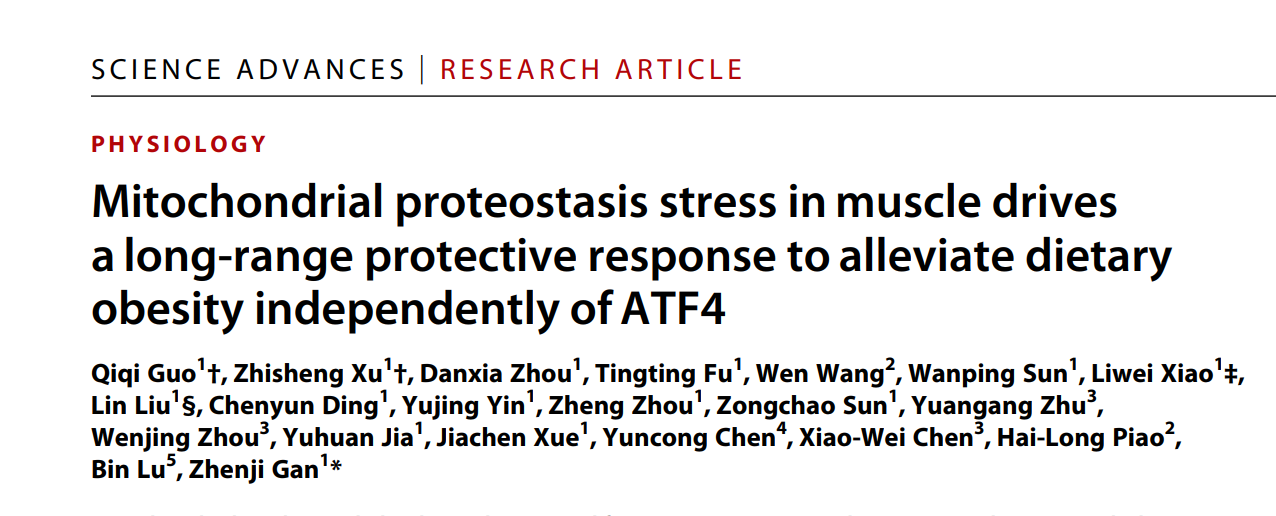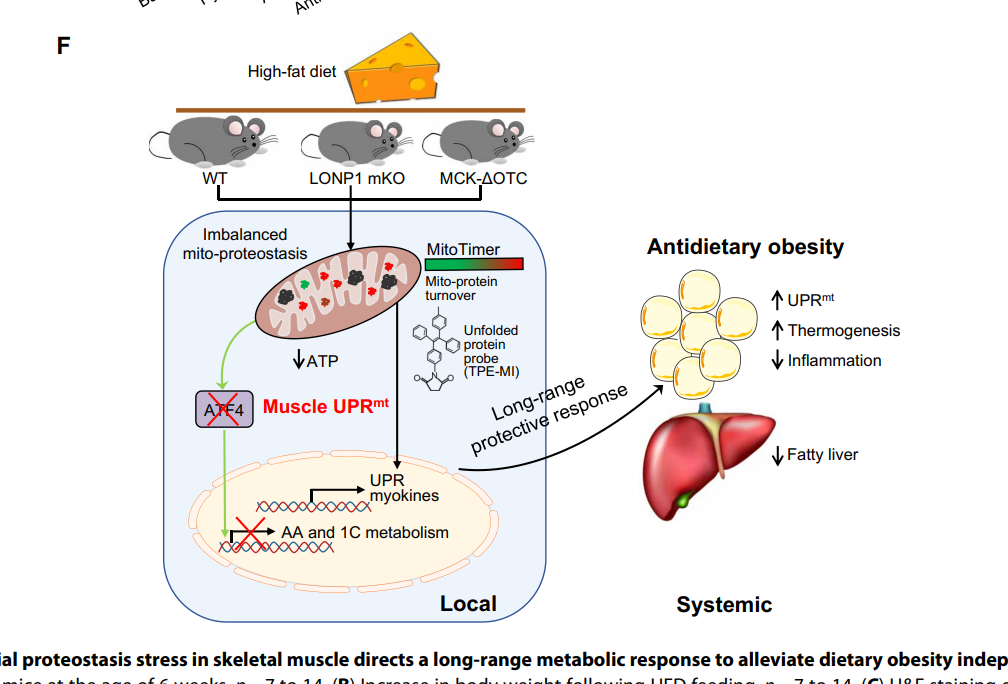On July 27, 2022, Professor Zhenji Gan’s team at the Model Animal Research Center of Nanjing University published a groundbreaking study titled “Mitochondrial proteostasis stress in muscle drives a long-range protective response to alleviate dietary obesity independently of ATF4” in Science Advances. The research revealed a novel mechanism through which the unfolded protein response (UPRmt) in skeletal muscle mitochondria regulates systemic metabolism. The co-first authors of the paper are Qiqi Guo and Zhisheng Xu, doctoral students from Nanjing University, with Professor Zhenji Gan as the corresponding author.

Mitochondria are crucial for providing the energy required to power cellular processes, and their function is particularly critical in skeletal muscle, the largest metabolically active and endocrine organ that heavily relies on mitochondria, accounting for approximately 40% of total body mass. However, the regulation of muscle mitochondrial quality and its physiological impacts are still largely unclear.
This study discovered that LONP1 links mitochondrial protein quality control to muscle mitochondrial proteostasis stress, which alleviates dietary obesity (Figure 1). Using two independent skeletal muscle-specific transgenic and knockout mouse lines, the team provided robust in vivo data demonstrating that LONP1-dependent mitochondrial protein quality control is crucial for safeguarding muscle mitochondrial proteostasis and preserving systemic metabolic homeostasis during high-fat diet metabolic stress. They also discovered that mitochondrial proteostasis imbalance elicits an UPRmt in muscle, which acts distally to regulate the response of the adipose tissue and liver to high-fat diet. Additionally, the researchers clearly demonstrated that muscle UPRmt acts independently of ATF4 to drive a long-range protective response, emphasizing the existence of an ATF4-independent UPRmt in mammals. Thus, they discovered a novel muscle UPRmt that drives a long-range protective response to alleviate dietary obesity.

Figure 1: Mitochondrial proteostasis stress in skeletal muscle directs a long-range metabolic response to alleviate dietary obesity independent of ATF4.
This work was supported by the National Natural Science Foundation of China, the Ministry of Science and Technology, the Ministry of Education, the Jiangsu Provincial Department of Science and Technology, and the Fundamental Research Funds for the Central Universities. The cooperative laboratories also provided significant assistance and support.
Link to the paper: https://www.science.org/doi/10.1126/sciadv.abo0340.



